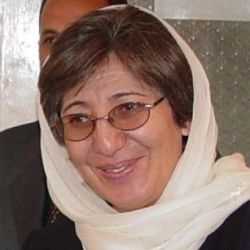In the presentation of her report to the UN Human Rights Council, Dr. Sima Samar, the incumbent special rapporteur on human rights in Sudan, announced that the country continues to face challenges in terms of securing the fundamental rights of the Sudanese people and effective administration of justice for violations of human rights across the country. The regions of Darfur and the Jonglei state in southern Sudan, where there have been several inter-tribal clashes killing hundreds of civilians, as well as the Western and Central Equatoria states, where Sudanese people have been attacked by the Ugandan rebel group the Lord’s Resistance Army (LRA), remain the areas where the security situation is most severe.
Dr. Samar pointed out other serious human rights violations in Sudan as well, including harassment of journalists and estrictions on freedom of expression through censorship of the media and press. These restrictions appear to be especially critical during the present six-year interim period of the Comprehensive Peace Agreement (CPA), signed in 2005, and before the upcoming national multi-party elections, expected in February 2010. Several country delegations raised the concern that terminating the special rapporteur’s mandate would be harmful for the current implementation process of the CPA, which is believed to be necessary for the sustainability of peace and justice in Sudan.
The Norwegian UN delegation commended both the Government of National Unity and the Government of Southern Sudan for the progress of human rights in the country, but remarked that these efforts need to be intensified for Sudan to reach its commitment to fully implement the CPA, including the provisions for the improvement of human rights on the ground. Taking into consideration the recent swells of violence throughout the country and the lack of justice and accountability for these crimes, particularly in southern Sudan where there’s a particular need for training and capacity building in efficient administration of justice, several delegations noted that the Human Rights Council must continue its close scrutiny of the situation in Sudan, with greater emphasis on technical assistance in the field of human rights. Representatives from Norway, Switzerland, the United States of America, the United Kingdom, and the Czech Republic on behalf of the European Union all spoke strongly in support of extending the special rapporteur’s mandate.
Dr. Samar called particular attention to the ongoing crises of hundreds of Darfuri civilians being persistently attacked by government forces as well as human rights activists and aid workers in the region being unfairly arrested and tortured. Human Rights Watch and Amnesty International raised specific concerns about the fates of these human rights defenders, who have been recurrently subject to unjust treatment, including arbitrary arrests, detainment, and severe beating.
Speaking out in support of Sudan’s position and against the extension of the mandate were, among others, representatives from the Arab Group, Egypt on behalf of the African Group, Pakistan on behalf of the OIC, the People´s Republic of China, Cuba, the Russian Federation, the Democratic People’s Republic of Korea. The Sudanese delegation stated that Dr. Samar presented an unbalanced picture of the real situation in the country, magnifying the weaknesses of the government’s policy on human rights and not putting enough emphasis on the positive progress made in this area. Sudan’s allies reiterated the argument that there is currently a multiplicity of international human rights monitoring mechanisms in the country and the mandate of an independent expert in Sudan is redundant and politicized, rather than indispensable for human rights protection.
In response to the argument that Sudan does not need another human rights monitor, Dr. Samar herself and several country delegations expressed the concern that there is presently a lack of concrete changes on the ground. Dr. Samar’s report acknowledged that some positive developments toward improving human rights have taken place in Sudan, including the establishment of the Human Rights Forum for Darfur and legislative reforms like the passing of the Human Rights Commission Act. Nevertheless, several delegations expressed that these limited improvements have yet to translate into tangible changes for civilians and the victims of human rights abuses. Dr. Samar reported that Sudan has yet to implement a significant number of recommendations made by the Group of Experts on Darfur, particularly in the area of protection of civilians, accountability, and justice. Therefore, in this present condition where momentum is slowly building for concrete improvement for human rights on the ground, the continued engagement of Sudan with the Human Rights Council through the monitoring of an independent expert is expected to lead to further practical action and assistance for the promotion and protection of fundamental rights of the Sudanese people.
The special rapporteur is the only currently existing mandate in Sudan that monitors and reports on the entire country and is the only independent mechanism that reports to the UN Human Rights Council. Since its creation in 2006, the Council has abolished similar mandates for the countries of the Democratic Republic of Congo, Liberia, Cuba, and Belarus. Only eight country-specific investigators remain, including those for Myanmar, Somalia, North Korea, and Sudan.
Documents:
- Special Rapporteur Sima Samar. Report to the Un HRC on Sudan. June 2009
- Overview of the vote on the Special Rapporteur on Sudan mandate
Related news articles
From Reuters:
http://www.reuters.com/article/latestCrisis/idUSLI271441
From Sudan Tribune:
http://www.sudantribune.com/spip.php?article31554
From Associated Press:
http://www.google.com/hostednews/ap/article/ALeqM5gvKxd4uP0U_iB9SJpCZHBMWMH-UgD98T5VCO0





